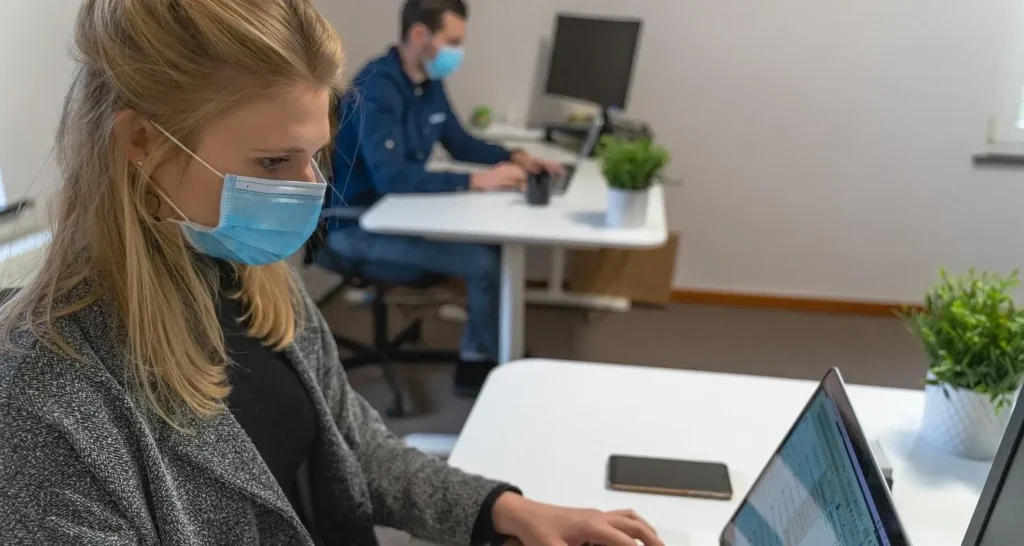Your body, your choices. The journey of reproductive rights is deeply personal and profoundly political. Every woman deserves autonomy, respect, and healthcare that empowers her to make informed decisions about her life and future.
Reproductive rights are fundamental human rights. They protect your ability to make critical healthcare decisions. These rights are more than just medical access. They represent personal freedom, bodily integrity, and the power to control your reproductive destiny.
In the United States, women’s rights have been shaped by decades of advocacy, legal battles, and cultural transformation. Understanding these reproductive rights is not just important. It’s essential for your personal empowerment and well-being.
Key Takeaways
- Reproductive rights are fundamental human rights
- Personal healthcare choices are a critical aspect of women’s rights
- Legal protections have evolved through persistent advocacy
- Understanding your rights is key for personal empowerment
- Reproductive healthcare is about more than medical access
The Historical Evolution of Women’s Healthcare Rights
The journey of women’s health and reproductive care is a story of courage and change. It spans from the first feminist movements to major legal wins. Women have always fought for their basic healthcare rights.
This journey shows the big struggles and big wins in women’s healthcare today. It’s thanks to brave people who broke down barriers and pushed for better care.
Early Feminist Movements and Healthcare Reform
Early feminist activists saw healthcare as a key fight for women’s rights. They worked on several important areas:
- Challenging wrong ideas about women’s bodies
- Pushing for women doctors in medicine
- Calling for full reproductive care
- Stopping unfair medical treatments
Landmark Legal Decisions Shaping Modern Rights
Legal wins were key in expanding women’s healthcare rights. Important court decisions changed the game for reproductive care. They gave women big wins in their health freedom.
| Year | Legal Decision | Impact on Women’s Health |
|---|---|---|
| 1965 | Griswold v. Connecticut | Legalized birth control for married couples |
| 1973 | Roe v. Wade | Secured abortion rights across the country |
| 1978 | Pregnancy Discrimination Act | Kept women safe from job bias |
Cultural Shifts in Healthcare Access
Views on women’s health have changed a lot. What was once hidden is now seen as key healthcare. Women now have more say in their reproductive health choices.
The story of women’s healthcare rights shows the power of never giving up. Knowing this history helps you keep fighting for fair and full reproductive care.
Understanding Your Basic Reproductive Rights
Reproductive rights are key to women’s health and freedom. As a woman in the United States, you have important legal protections. These protect your choices and access to healthcare.
These rights cover many personal decisions about your body and future.
Your reproductive rights include several key components:
- The right to access complete reproductive healthcare
- Freedom to make personal choices about pregnancy
- Access to contraception and family planning services
- Protection from discrimination in healthcare settings
Knowing these rights helps you make informed choices about your health. The law lets you:
- Seek medical consultations without judgment
- Choose birth control methods
- Receive confidential medical care
- Make personal healthcare decisions
Women’s rights in reproductive healthcare are not just legal concepts—they represent fundamental personal freedoms. Every woman’s journey is different. These rights help you navigate your reproductive health with dignity, privacy, and support.
“Reproductive rights are human rights” – A fundamental principle of women’s healthcare
Your reproductive rights protect your personal freedom. They ensure you have control over your healthcare choices. These rights help keep you physically and emotionally well, respecting your unique situation.
Access to Essential Healthcare Services
Understanding women’s health means knowing all the reproductive healthcare services out there. You have the right to get the medical care you need. This care is important for your health at every stage of life.
Good healthcare is key for women’s well-being. It’s not just about treating illnesses. It’s also about taking care of your reproductive health and preventing problems.
Primary Care and Preventive Services
Preventive care is the base of managing women’s health. It includes:
- Annual gynecological examinations
- Comprehensive wellness screenings
- Breast and cervical cancer screenings
- Immunization updates
Specialized Reproductive Healthcare
Specialized services meet specific reproductive health needs. They offer support for different conditions and life changes. These services include:
- Fertility consultations
- Prenatal and postnatal care
- Hormone management
- Reproductive endocrinology services
Emergency Medical Services
Your reproductive healthcare rights also cover emergency situations. These services make sure you get the care you need right away when health problems happen.
Knowing about these important women’s health services helps you make better choices for your reproductive health journey.
Birth Control Options and Accessibility
Choosing birth control can seem daunting. But knowing your options helps you make smart choices. Today, there are many ways to prevent pregnancy and manage your reproductive health.
You have many birth control choices, from hormonal to non-hormonal:
- Hormonal Methods
- Birth control pills
- Contraceptive patches
- Hormonal intrauterine devices (IUDs)
- Contraceptive implants
- Non-Hormonal Methods
- Copper IUDs
- Barrier methods (condoms, diaphragms)
- Natural family planning
Healthcare experts suggest picking a method that fits your health, lifestyle, and preferences. Talking to a healthcare provider can help find the best choice for you.
“Your reproductive health is a personal journey, and understanding your options is the first step to empowerment.” – Women’s Health Experts
Insurance coverage for birth control varies. Check your plan to know what you might pay out of pocket. Many providers offer affordable fees and private talks to help with reproductive healthcare.
The Impact of State Legislation on Healthcare Choices
Understanding reproductive rights can be like trying to find your way through a maze. The laws in your state greatly affect your access to reproductive healthcare. This creates a mix of rules that can change how you make medical decisions.
It’s important to know the legal details about reproductive rights. Each state has its own rules about abortion and reproductive healthcare. This means there are big differences in what services are available.
Current Legal Framework
The laws about reproductive rights are changing fast. Several things can affect your healthcare choices:
- State-specific abortion restrictions
- Waiting period requirements
- Age of consent for medical procedures
- Insurance coverage limitations
State-by-State Variations
Where you live can greatly affect your access to reproductive healthcare. Some states offer a lot of reproductive rights. Others have very strict rules on abortion and related services.
“Your zip code can significantly determine your reproductive healthcare options.” – Women’s Health Advocacy Network
Recent Legislative Changes
In recent years, there have been big changes in laws about reproductive rights. States keep changing their laws that affect healthcare choices. It’s key to keep up with these changes in your area.
Keeping track of these changes is important. Talking to local healthcare providers and advocacy groups can help. They can explain your reproductive rights and what healthcare options you have.
Family Planning Services and Resources

Exploring reproductive healthcare can be daunting. But, family planning services offer detailed support for those wanting to make informed choices about their health. These services give you the tools to manage your healthcare journey.
Family planning services include many important healthcare options:
- Comprehensive reproductive health counseling
- Fertility awareness education
- Pregnancy testing and consultation
- Contraceptive method consultations
- Sexual health screenings
There are many resources for reproductive healthcare in various places:
- Community health clinics
- Private healthcare providers
- Planned Parenthood centers
- University health services
- Online telehealth platforms
“Knowledge is power, when it comes to your reproductive health.” – Dr. Sophia Martinez, Women’s Health Specialist
Knowing your options helps you make choices that fit your health needs. Many family planning services offer affordable fees and private consultations. This makes reproductive healthcare available to all.
Your reproductive health journey is unique. By using family planning services, you get expert advice, medical support, and care that meets your needs.
Sexual Education and Reproductive Health Knowledge
Knowing about sexual education and reproductive health is key to feeling empowered. It helps you make smart choices about your health. This knowledge is important for your well-being and future decisions.
Sexual education is more than just learning about bodies. It’s about understanding your health and relationships too. Good programs teach you about reproductive health. This helps you make choices that are good for you.
Evidence-Based Education Programs
Quality sexual education programs give you accurate, age-right info. They use science-backed ways to teach. These programs cover:
- Anatomy and how your body grows
- What consent and personal space mean
- How to prevent STIs
- The emotional side of relationships
Community Resources and Support
Your community has many places for learning about reproductive health. These places offer private advice, counseling, and health services.
- Planned Parenthood clinics
- School health centers
- Community health workshops
- Online learning sites
Knowing about reproductive health is a strong tool for empowerment and smart health choices.
Healthcare Disparities and Reproductive Justice
Reproductive justice is more than just getting to the doctor. It’s about making sure everyone has the chance to get the healthcare they need. This includes looking at social, economic, and system barriers that stop people from getting equal care.
Looking at reproductive justice shows us big differences in health care for different groups. People who are often overlooked face big challenges in getting the health care they need.
- Low-income communities have fewer health care options
- Racial minorities face more health care bias
- Rural areas have less health care for reproductive needs
To really understand these issues, we need to look at many factors. These factors affect how well women can get health care and how good that care is.
| Community Group | Healthcare Access Challenge | Impact Percentage |
|---|---|---|
| African American Women | Systemic Healthcare Bias | 35% |
| Rural Women | Limited Medical Facilities | 42% |
| Low-Income Communities | Financial Barriers | 48% |
Reproductive justice supporters are working hard to fix these big problems. They aim to create plans that help women from all walks of life make smart health care choices.
“True healthcare equity means ensuring every woman has meaningful access to quality reproductive health services.” – National Women’s Health Network
Your help and support can help break down these barriers. Together, we can work towards reproductive justice for all women in the United States.
Global Perspectives on Reproductive Rights
Reproductive rights are not just a local issue. They are a global concern, affecting healthcare and human rights worldwide. Seeing these global views helps us understand the different challenges and successes in women’s rights.

Women’s reproductive rights vary worldwide. Each country has its own way of handling healthcare and personal freedom. These differences greatly affect women’s choices.
International Healthcare Standards
Global health groups have set important standards for reproductive rights. These standards aim to:
- Ensure everyone has access to healthcare
- Protect against discrimination
- Offer full medical support
- Respect each person’s body
Cross-Cultural Approaches
Cultural views on reproductive rights are very different. Some countries see women’s healthcare as a basic human right. Others have stricter rules. Countries in development often struggle to provide full reproductive healthcare.
Reproductive rights are human rights, beyond borders and cultures.
Various regions have their own ways of dealing with women’s rights and healthcare. Scandinavian countries are often at the forefront, with advanced healthcare and strong laws.
By looking at these global views, we can better understand the ongoing talks about reproductive rights and women’s healthcare.
Advocacy and Support Organizations
Your help in reproductive rights can really make a difference. Many advocacy groups work hard to protect women’s health. They make sure everyone has access to the healthcare they need in the United States.
Some key national groups focused on reproductive rights are:
- Planned Parenthood
- National Women’s Health Network
- NARAL Pro-Choice America
- Center for Reproductive Rights
These groups have many ways for you to help:
- Volunteer opportunities
- Donation programs
- Community education workshops
- Political advocacy campaigns
“Empowerment begins with knowledge and collective action” – Women’s Health Advocate
Your local area probably has groups focused on reproductive rights too. These local groups offer important support, legal help, and educational programs. They aim to improve women’s healthcare access.
| Organization | Primary Focus | Support Services |
|---|---|---|
| Planned Parenthood | Comprehensive Healthcare | Medical Services, Education |
| NARAL Pro-Choice America | Legal Advocacy | Policy Reform, Awareness |
| National Women’s Health Network | Health Information | Research, Empowerment |
By joining these organizations, you help protect and improve reproductive rights. Your involvement can lead to real change in women’s healthcare.
Future of Women’s Healthcare Rights
The world of reproductive healthcare is changing fast. New technologies and policies are making healthcare better for women. This is a big step forward.
New technologies are changing reproductive healthcare in big ways. Scientists are working on new solutions that will change how women get healthcare.
Cutting-Edge Technological Innovations
- AI-powered tools for early health checks
- Genetic tests for fertility and health risks
- Telemedicine for remote health talks
- Smart birth control with better tracking
Policy Trends Shaping Future Access
Women’s health rights will depend on new policies. Leaders are starting to see reproductive healthcare as a basic right.
- More telehealth for reproductive care
- More money for women’s health studies
- Policies that help all women, not just some
Predictive Insights for Reproductive Healthcare
Experts say women’s healthcare will change a lot. Personalized medicine and data will be key. This means better health care for women.
Your help is needed to support these new ideas and laws. By staying up to date, you can help improve women’s healthcare rights.
Conclusion
Reproductive rights are key to women’s rights in the United States. Your understanding and action can lead to big changes in healthcare and personal freedom. Every person can influence the conversation on reproductive healthcare and push for better systems.
It’s important to stay up-to-date on laws and support groups that fight for women’s rights. These rights are always changing, needing constant learning and community help. Your knowledge can help change how society views reproductive healthcare.
The fight for reproductive rights needs everyone’s help. By knowing your healthcare choices, supporting sex education, and fighting unfair rules, you can help women’s rights grow. Remember, we all need to work together and stand up for ourselves.
As new technologies and laws come along, your voice is more important than ever. Fight for full reproductive healthcare, push for new laws, and talk openly about these issues. Your efforts can help ensure more reproductive rights for all, now and in the future.
FAQ
What are reproductive rights?
Reproductive rights are basic human rights. They let you decide about your reproductive health. This includes when and how to have children. These rights also cover access to healthcare, contraception, and family planning.
How do state laws impact my reproductive healthcare choices?
State laws can change a lot. Some states have strict rules that limit access to certain healthcare. Others offer more freedom. Knowing your state’s laws is key to understanding your healthcare options.
What birth control options are available to me?
There are many birth control options. You can choose from hormonal methods, barrier methods, IUDs, and more. Each has its own benefits and side effects. Talking to a healthcare provider can help you pick the right one.
How can I access reproductive healthcare if I have limited financial resources?
Affordable reproductive healthcare is available. Look for Planned Parenthood, community clinics, and Title X programs. Many offer free or low-cost services based on your income.
What should I know about my rights to reproductive healthcare?
You have the right to:
– Get full medical care
– Use contraception
– Make choices about pregnancy
– Get confidential care
– Learn about sexual health
– Not face discrimination in healthcare
How can I stay informed about reproductive rights?
Stay informed by:
– Following reproductive rights groups
– Subscribing to healthcare newsletters
– Going to local events
– Joining advocacy groups
– Keeping up with state laws
– Talking to healthcare providers
What are the current challenges in reproductive healthcare?
Challenges include:
– Laws that limit access
– Disparities in healthcare
– Limited sexual education
– Socioeconomic barriers
– Stigma around reproductive health
– Unequal coverage
Where can I find support and resources for reproductive health?
You can find support at:
– Planned Parenthood clinics
– Community health centers
– Online groups
– National organizations
– Telehealth services
– College health centers
How do emerging technologies impact reproductive healthcare?
New technologies are changing reproductive healthcare. They offer advanced contraceptives, telemedicine, and more. This includes at-home tests, health apps, and genetic screening.










